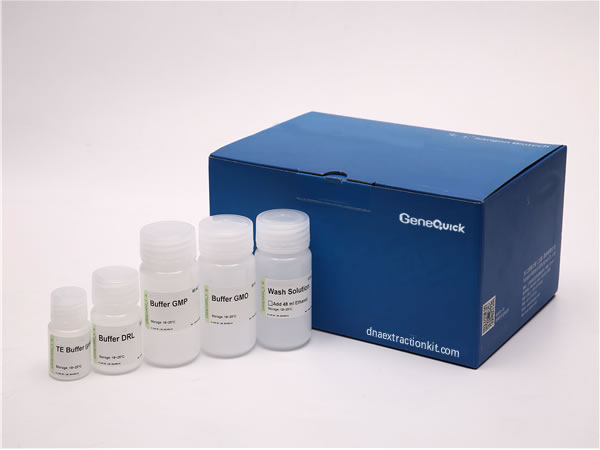What is Silica Beads DNA Extraction Kit for FFPE Samples?
The Silica Beads DNA Extraction Kit for FFPE (Formalin-Fixed Paraffin-Embedded) samples is a specialized laboratory tool designed to isolate DNA from preserved tissue specimens. FFPE samples are commonly used in medical research and diagnostics because they allow long-term storage of biological materials, but the fixation process can damage DNA, making extraction challenging. This kit utilizes silica beads, which bind to DNA molecules, enabling efficient purification even from degraded or cross-linked samples. It is an essential product for pathologists, researchers, and clinicians working with archived tissues, such as those from biopsies or autopsies, to study diseases like cancer or genetic disorders.
Using this kit involves a series of steps where the silica beads capture DNA through a process called adsorption, separating it from other cellular components. The result is high-quality DNA that can be used for downstream applications like PCR, sequencing, or genetic analysis. This method is particularly valuable because it overcomes the obstacles posed by formalin fixation, which can cause DNA fragmentation and protein cross-linking, ensuring reliable results in critical studies.

Technical Specifications
| Model | Method | Sample | Format | Workflow |
|---|---|---|---|---|
| S-FFPE-20R | Silica Beads | FFPE Tissue | 20R | Manual |
| S-FFPE-50R | Silica Beads | FFPE Tissue | 50R | Manual |
| S-FFPE-100R | Silica Beads | FFPE Tissue | 100R | Manual |
| S-FFPE-200R | Silica Beads | FFPE Tissue | 200R | Manual |
| S-FFPE-8R | Silica Beads | FFPE Tissue | 8R | Semi-automated or Fully Automated |
| S-FFPE-24R | Silica Beads | FFPE Tissue | 24R | Semi-automated or Fully Automated |
| S-FFPE-48R | Silica Beads | FFPE Tissue | 48R | Semi-automated or Fully Automated |
| S-FFPE-72R | Silica Beads | FFPE Tissue | 72R | Semi-automated or Fully Automated |
| S-FFPE-96R | Silica Beads | FFPE Tissue | 96R | Semi-automated or Fully Automated |
Working Principle
The principle behind the Silica Beads DNA Extraction Kit for FFPE samples revolves on the affinity of DNA for silica surfaces under specific buffer conditions. The process begins with deparaffinization and lysis of the FFPE sample to release DNA, followed by the addition of silica beads that bind to the DNA molecules in the presence of chaotropic salts. These salts disrupt hydrogen bonding and promote DNA adsorption onto the beads. After binding, washing steps remove impurities like proteins, RNA, and chemicals, leaving pure DNA adhered to the silica.
Elution is then performed using a low-salt buffer or water, which disrupts the DNA-silica interaction, releasing the purified DNA into solution. This method leverages the robust binding capacity of silica beads, which is highly effective even for damaged DNA from FFPE samples, ensuring high recovery rates. The principle is grounded in biochemistry and physics, exploiting surface properties to achieve selective isolation, making it a reliable and scalable approach for modern laboratories.
Performance
The performance of the Silica Beads DNA Extraction Kit for FFPE samples is optimized to handle the unique challenges of fixed tissues. It consistently yields DNA with high purity and integrity, as measured by absorbance ratios (e.g., A260/A280 around 1.8-2.0) and gel electrophoresis, which show minimal degradation. This ensures that the extracted DNA is suitable for sensitive techniques like next-generation sequencing (NGS) or qPCR, where low-quality DNA could lead to inaccurate results. In comparative studies, this kit often outperforms traditional methods by providing higher DNA recovery rates from small or old FFPE blocks, reducing the need for large sample volumes and saving precious materials.
Users can expect efficient performance across a wide range of FFPE sample types, from human tissues to animal or plant specimens, with protocols adaptable to various scales. The kit's reliability makes it a trusted choice in clinical settings for mutation analysis or in research labs for retrospective studies, where consistent DNA quality is crucial for reproducible findings. Performance tests typically demonstrate low inhibitor carryover, meaning the DNA is clean and ready for immediate use without additional purification steps.
Application
This kit is widely applied in fields such as oncology, where FFPE samples are staples for cancer research and diagnosis. It enables the extraction of DNA from tumor tissues stored for years, facilitating studies on genetic mutations, biomarker discovery, and personalized medicine. In infectious disease research, it helps analyze pathogens in archived samples, while in forensics, it can be used for DNA profiling from old or preserved evidence. Additionally, it supports agricultural and environmental studies by allowing DNA extraction from plant or microbial FFPE samples, aiding in genetic diversity assessments or historical trait analysis.
Beyond research, the kit has practical applications in clinical diagnostics, such as non-invasive prenatal testing (NIPT) or genetic screening, where high-quality DNA from FFPE tissues is needed for accurate results. It is also valuable in veterinary medicine for animal health studies and in food safety for tracing contaminants in preserved samples. The versatility of this kit makes it indispensable for any scenario involving long-term sample preservation and subsequent DNA analysis.
Core Features and Advantages
The core features of this kit include its high efficiency in DNA binding and elution, compatibility with automated systems, and user-friendly protocol that reduces hands-on time. It is designed to handle the tough nature of FFPE samples, offering advantages such as minimized cross-contamination risk due to single-use components and scalability from small to high-throughput applications. The silica beads provide a large surface area for optimal DNA capture, enhancing yield even from low-input samples, which is critical for precious or limited specimens.
Advantages also encompass cost-effectiveness, as the kit reduces the need for multiple reagents or specialized equipment, and its ability to produce DNA free of inhibitors, ensuring success in downstream analyses. Compared to other methods, it offers faster processing times and higher consistency, making it a preferred choice for labs aiming for standardized results. The kit's robustness across various sample types and conditions further underscores its utility in diverse scientific endeavors.